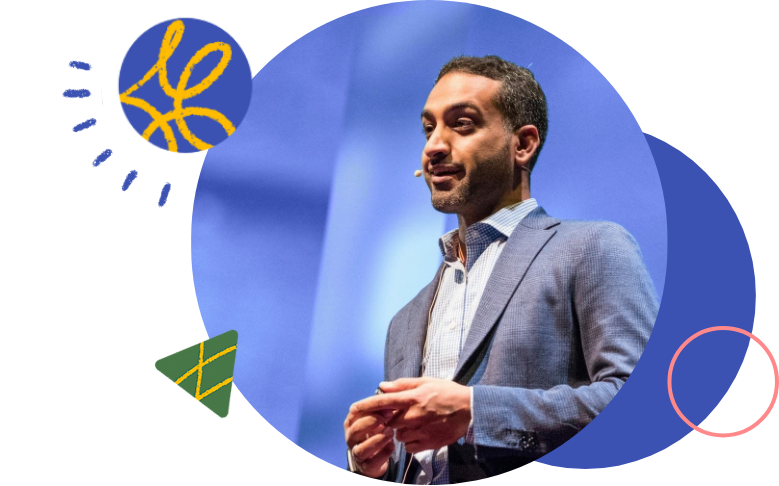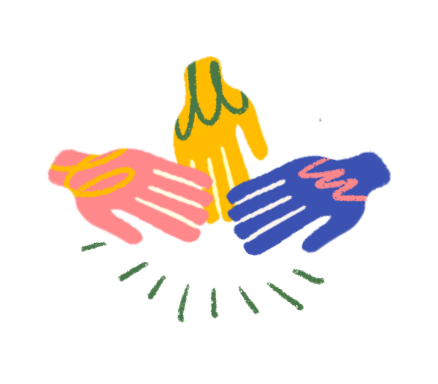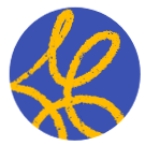Solutions
Training
Our expert-led programs equip employees and leaders with the knowledge, tools, and practical skills they need to make fair, informed decisions, lead with impact, and collaborate more effectively. Each program exists to build a culture where people and performance thrive.

We raise awareness, build knowledge and drive impact
We delivered practical, tailored and impactful learning experiences to thousands of teams across Canada. Our training team has diverse experiences that make our programs highly relatable to people across sectors, functions and levels of every organization.

Workshops
These highly interactive sessions can range from 2 hours to a full day. They are aimed at small groups to maximize discussion and participation. We’ll gather insights from your team in advance to make sure the workshop is tailored to you so that it’s practical and relevant.

Keynotes
Need an engaging speaker or panelist for an upcoming conference or meeting? Our knowledgeable and charismatic team of experts deliver informative and thought-provoking presentations that will leave participants inspired to create meaningful change.

Webinars
These engaging presentations are best suited for mid to large-sized groups. There is interaction using tools such as polling and whiteboarding. Typically 60-90 minutes in length, this is a great way to introduce topics and engage a larger audience in an important conversation. Want to continue the conversation? Inclusivity provides discussion guides and resources for ongoing learning.

E-Learning
Our interactive self-paced e-learning programs deliver impactful learning to any person, anywhere, any time. Using facilitator-led videos, exercises, guided self-reflections and sustained learning tools, our programs equip employees with knowledge, skills and strategies for embedding inclusion into their day-today work, and gives them the tools they need to take action.
What topic would you like to start with?
We offer training on a broad range of topics. Some of our most commonly requested sessions include:
Strengthening Competencies and Skills Building
Unconscious bias exists in each person’s worldview, affecting our behaviours resulting in barriers to inclusion, performance and engagement. This session will provide participants with a deep dive into the concept of unconscious bias, explaining how implicit beliefs and stereotypes shape our decisions without our conscious awareness. Through an exploration of the neuroscience behind bias, participants will understand how biases form and why they can influence our perceptions and actions. Participants will gain insights into the importance of allyship and how to actively support a more inclusive and equitable work environment.
People with a growth mindset believe that ability and talent can be developed. This mindset allows us to better adapt and respond to challenges and opportunities, as well as unlock the potential in ourselves, our teams, and our colleagues. It turns out that organizations have mindsets too – and that fostering a growth mindset influences their ability to attract, promote and engage people from diverse backgrounds. In this session, participants learn about a growth vs. fixed mindset, identify their own mindset and its impact on their team/organization. Leaders taking this course will also leave with practical tools and strategies to promote a growth mindset in themselves and their teams.
In today’s diverse workplace, building cultural awareness and cultural sensitivity is the first step toward fostering inclusivity, collaboration, and respect. Our training goes further by developing the competencies needed to navigate cultural differences, communicate effectively, and strengthen relationships across teams. By combining awareness with practical skills, organizations can reduce misunderstandings, build trust, and create a workplace where everyone feels valued and supported.
This interactive workshop equips teams with the skills and confidence to recognize, address, and prevent harmful behaviors in the workplace. Participants will learn about the Bystander Effect, uncover the factors that influence intervention and develop practical, real-world strategies to step in safely and effectively. Through this program, participants build the confidence and skills to create a safer, more inclusive workplace.
As workplaces grow more diverse, effective intercultural communication is key to fostering equity, diversity, and inclusion. This session explores cultural influences on communication, identifies common barriers, and provides a practical framework to navigate differences with empathy. Gain tools to communicate with confidence and create an inclusive environment. Perfect for diverse teams or anyone looking to strengthen their intercultural skills.
In today’s complex and diverse world, the ability to engage in courageous conversations is crucial for fostering understanding, empathy, and positive change. In this session, we will explore the principles and strategies behind courageous conversations, providing you with the tools to navigate difficult topics, express your views effectively, and create inclusive environments where meaningful dialogue can take place. Regardless of your role, this session will empower you to take the lead in engaging in open and honest conversations that promote growth, understanding, and collaboration.
Language can build relationships and forge connections, but it’s equally liable for creating barriers and impacting someone’s sense of belonging. When we are mindful in how we communicate, we can intentionally create respectful spaces for the colleagues we work with and communities we serve. As language evolves, our vocabulary, and empathy should shift in tandem. Participants in this training will learn the principles that underpin inclusive language and how to apply these principles. This helps us embed inclusive language into our everyday interactions and build a culture of belonging.
Emotional intelligence is a critical capability for navigating change, building resilient teams, and interacting with empathy and effectiveness. This interactive half-day workshop helps participants deepen self-awareness, enhance empathy, and develop practical strategies for emotionally intelligent decision-making, communication, and conflict resolution. Through reflection, discussion, and hands-on exercises, participants will practice responding with emotional agility in challenging situations and leave with actionable strategies to apply EI in daily decisions, team interactions, and workplace relationships.
Mentorship is often treated as something formal, time-consuming, and reserved for senior leaders. In reality, some of the most powerful mentorship happens in everyday moments. This session introduces micro-mentorship as small, intentional actions that make mentorship more accessible and inclusive. Participants will challenge common mentorship myths and leave with practical ways to create meaningful impact through everyday interactions.
Leading Change
An organization is only as strong as its culture—and every person has a role to play in building that culture. This session equips participants with a robust and shared understanding of important equity, diversity and inclusion concepts and terminology. This will lay the groundwork for productive conversations about building safe spaces and an inclusive culture for those outside our own lived experiences.
Successful teams are built on a foundation of trust, open communication, and effective collaboration. In today’s dynamic workplaces, fostering these qualities is essential for innovation, productivity, and a positive work culture. This session equips participants with the tools and strategies needed to communicate more effectively, build stronger relationships, and create a culture of trust. Through interactive discussions and real-world examples, attendees will gain insights into overcoming collaboration barriers, strengthening team dynamics, and building an inclusive culture where every voice is heard.
Boards don’t just oversee strategy—they shape the culture that brings it to life. When boards lead with inclusion, they help organizations live their values, attract top talent, and deliver strong results. This interactive session gives board members the knowledge and tools to support inclusion at the highest level. Learn how to align culture with strategy, remove barriers for leadership, and confidently govern in today’s diverse workplace. You’ll gain insights and practical frameworks to help your board support and sustain an inclusive, high-performing culture.
Organizations looking to make meaningful progress toward a more diverse and inclusive culture rely on the support of EDI employee advisory groups or committees. These committees, if structured and managed effectively, support establishing actionable goals, evaluate policies and processes and provide valuable feedback channels for the leadership.
In this session, newly formed EDI groups and committees will gain valuable knowledge and tools to prepare them to do their work and identify the ways in which their purpose can be fulfilled.
Unlock the true potential of your team with the power of data-driven insights. In this dynamic workshop, you’ll discover how to use key metrics and people data to foster greater inclusion, boost collaboration, and drive results. Learn practical strategies to identify hidden barriers, measure what matters, and create a workplace where every voice contributes to success. Whether you’re leading a small team or a large organization, you’ll walk away with actionable tools to build a culture of belonging and high performance — all backed by real data.
This interactive workshop is designed for leaders to understand how to successfully plan and influence change towards a more equitable and inclusive workplace. In this session, we discuss the journey organizations take to advance equity, diversity and inclusion, and identify the key priorities at each stage. Ensuring the foundations of leadership commitment and data are in place will position a team well for implementing the right initiatives at the right time. Through a facilitated discussion, participants will reflect on the current and desired state for their team and walk away with practical next steps.
In today’s rapidly changing environment, questions around equity, diversity, and inclusion are more visible—and more complex—than ever. For leadership teams, this presents both a challenge and an opportunity: how do you stay true to your values while navigating evolving expectations, internal pressures, and external scrutiny?
This interactive workshop is designed to support leaders in reaffirming their commitment to inclusion in a way that is strategic, authentic, and responsive to the current moment. Led by Wyle Baoween, the session will combine facilitated discussion, real-world insights, and space for reflection on what inclusive leadership looks like now—and what it requires next.
Participants will explore where their organization stands, what their people need, and how to move forward with purpose, empathy, and clarity. Whether you’re recalibrating your approach or doubling down on your commitments, this session will help you lead with integrity in uncertain times.
Building the Foundations of an Inclusive Culture
The ability to navigate race and privilege is a critical component of building a more equitable and just society. This session provides the foundational knowledge required to build a more conscious organization through exploring the complexities of privilege, power, and race in the context of Canadian society. By examining our racial history we will uncover the roots of racial inequality and how these historical injustices persist today so participants can begin to recognize how and why systemic racism and oppression continue to impact equity-deserving communities. The session will also focus on the importance of allyship and provide practical strategies for combating racism through anti-racist actions and allyship.
An organization is only as strong as its culture—and every person has a role to play in building that culture. This session equips participants with a robust and shared understanding of important equity, diversity and inclusion concepts and terminology. This will lay the groundwork for productive conversations about building safe spaces and an inclusive culture for those outside our own lived experiences.
Unconscious bias exists in each person’s worldview, affecting our behaviours resulting in barriers to inclusion, performance and engagement. This session will provide participants with a deep dive into the concept of unconscious bias, explaining how implicit beliefs and stereotypes shape our decisions without our conscious awareness. Through an exploration of the neuroscience behind bias, participants will understand how biases form and why they can influence our perceptions and actions. Participants will gain insights into the importance of allyship and how to actively support a more inclusive and equitable work environment.
An organization is only as strong as its culture—and every person has a role to play in building that culture. Building an inclusive culture attracts talent, fosters innovation and removes barriers for people from diverse backgrounds.This session equips participants with a robust and shared understanding of important inclusion concepts and terminology. This will lay the groundwork for productive conversations about building safe spaces and an inclusive culture for those outside our own lived experiences.
A respectful workplace fosters trust, collaboration, and productivity. The clearest evidence of respect can be seen in engaged employees who value and appreciate one another; on the other hand, a lack of respect can lead to high turnover, conflict, grievances, and low morale.
Our Respect in the Workplace training equips teams with the awareness and skills needed to foster positive team dynamics, navigate workplace challenges effectively, and contribute to a workplace where respect is the foundation of success.
A healthy workplace starts with understanding and supporting mental well-being. This program equips participants with the knowledge and tools to recognize signs of stress, reduce stigma, and foster open conversations about mental health. Through practical strategies and guided reflection, participants learn how to build resilience, support colleagues, and create a culture where mental health is prioritized and everyone can thrive.
Creating Pathways for a Community of Belonging
The ability to navigate race and privilege is a critical component of building a more equitable and just society. This session provides the foundational knowledge required to build a more conscious organization through exploring the complexities of privilege, power, and race in the context of Canadian society. By examining our racial history we will uncover the roots of racial inequality and how these historical injustices persist today so participants can begin to recognize how and why systemic racism and oppression continue to impact equity-deserving communities. The session will also focus on the importance of allyship and provide practical strategies for combating racism through anti-racist actions and allyship.
The ability to navigate race and privilege is a critical component of building a more equitable and just society. This session provides the foundational knowledge required to build a more conscious organization through exploring the complexities of privilege, power, and race in the context of Canadian society. By examining our racial history we will uncover the roots of racial inequality and how these historical injustices persist today so participants can begin to recognize how and why systemic racism and oppression continue to impact equity-deserving communities. The session will also focus on the importance of allyship and provide practical strategies for combating racism through anti-racist actions and allyship.
Microaggressions are everyday indignities and subtle yet impactful acts of exclusion often experienced by people from equity-deserving groups. This session will focus on defining various types of microaggressions, understanding how they are linked to implicit bias, and recognizing their presence in daily interactions. We will explore how to respond effectively, both as allies and bystanders, to reduce the occurrence of microaggressions and create a more inclusive environment.
More than ever, there is a need for us to acknowledge our individual role in creating more equitable and inclusive teams and organizations. To facilitate meaningful change, it is crucial for us to be visible allies and to follow through with tangible actions. In practice, allyship requires those with power and privilege to affect change in both the culture and systems that shape our organizations. In this session, participants will understand what it means to be an ally, the core principles of allyship, and practical tips that can be applied to everyday practices.
Allyship for Marginalized Groups
Len Pierre Consulting Workshop
Being an ally is not a static identity, it is not a badge of honor, it is a sign of privilege. Allyship is also not declared but based on the context in which you ACT. This course unpacks the similarities and differences for being an ally to Indigenous peoples in relationship to other ally contexts.
Len Pierre Consulting Workshop
Being an ally is not a static identity, it is not a badge of honor, it is a sign of privilege. Allyship is also not declared but based on the context in which you ACT. This course unpacks the similarities and differences for being an ally to Indigenous peoples in relationship to other ally contexts.
In our communities and workplaces, 1 in 5 people have a disability. Therefore, creating accessible spaces where we live, learn and work is becoming a critical part of building an inclusive culture. In this session, we talk about leading practices for accessibility and challenge common assumptions about people with disabilities. Participants will learn about the different barriers faced by people with disabilities and how to make their workplaces and the services they provide inclusive, accessible and barrier free.
Anti-Black racism remains a deeply rooted issue in our society and workplaces, shaping experiences, opportunities, and outcomes for Black individuals. This interactive session offers a foundational understanding of anti-Black racism—what it is, how it operates, and why it persists.
Through real-world examples and facilitated discussion, participants will explore the historical and systemic roots of anti-Black racism, how it shows up in daily interactions and organizational structures, and what it means to actively challenge it. We’ll also unpack the difference between being “not racist” and being actively anti-racist, and explore practical steps toward creating a workplace culture grounded in equity and respect.
Gender inequities continue to shape workplace experiences—from pay gaps and promotion barriers to daily biases and invisible labour. This session explores the structural and cultural factors that contribute to gender inequity, and what it takes to create workplaces where all genders can thrive. In this session, participants will build their understanding of how gender shows up in policies, practices, and everyday interactions—often in ways that go unseen or unchallenged. We’ll explore the intersection of gender with other identities, examine common myths and assumptions, and highlight opportunities to make change.
While acceptance of 2SLGBTQIA+ people is increasing, many people in the community experience significant discrimination and harassment. There continues to be new and existing legislation in North America and around the world which seeks to limit the human rights, dignity, and safety of 2SLGBTQIA+ people. Workplaces have an obligation to create and maintain a safe and inclusive workplace for 2SLGBTQIA+ people. This webinar provides participants with a foundational understanding of the experiences of members of the 2SLGTBTQIA+ people in society in general and in workplaces specifically.
Somewhere between 10 and 20 percent of the global population is considered neurodivergent. While organizations are starting to take notice and recognize the value that neurodiversity could bring to their teams, many lack the understanding of what neurodiversity means, how it presents in the workplace, and what strategies would help to foster a culture of inclusion. In this session, participants will learn What neurodiversity is, understand some experiences of people with neurodivergence in the workplace as well as the accommodations and hiring strategies associated with it, and how everyone can foster a culture of inclusion in the workplace.
This innovative men only workshop shatters the myth that men don’t have an important role to play in creating and sustaining inclusive work environments for all genders. It is designed to address gender equity, diversity and inclusion challenges and to navigate the role men can play as allies.
Without the support of men, often the most powerful stakeholders in large corporations, significant progress toward ending gender disparities is unlikely. According to The Harvard Business Review, “evidence shows that when men are deliberately engaged in gender inclusion programs, 96% of organizations see progress — compared to only 30% of organizations where men are not engaged.” Join us for a full day, dynamic learning experience that engages men in examining their mindsets and shifting behaviors. This workshop allows men to openly explore their questions, concerns and hopes for building gender equitable and inclusive workplaces.
In today’s workplaces, multigenerational teams are more common than ever, bringing together a wealth of perspectives, experiences, and skills. In this session, we will explore effective strategies for promoting cross-generational collaboration through respect, empathy, and understanding. We’ll address common stereotypes between generations and provide actionable steps to break down these barriers, creating an inclusive environment where all employees feel valued. By leveraging the unique strengths of each generation, organizations drives learning, growth, and innovation
Inclusive Practices for Functions
An organization is only as strong as its culture—and every person has a role to play in building that culture. This session equips participants with a robust and shared understanding of important equity, diversity and inclusion concepts and terminology. This will lay the groundwork for productive conversations about building safe spaces and an inclusive culture for those outside our own lived experiences.
This session equips teams with the knowledge and strategies needed to attract, recruit, and retain a diverse workforce. Participants will explore common barriers to inclusive hiring, including unconscious bias, and learn practical techniques to create fair, equitable, and objective recruitment processes. This session provides actionable steps to expand talent pipelines, foster an inclusive candidate experience, and build a workplace where diverse employees feel valued and supported.
Unconscious bias exists in each person’s worldview, affecting our behaviors in the workplace. As a result, unconscious bias creates barriers to inclusion in attracting, retaining and developing diverse talent.
This interactive session will assist people involved in the hiring process to understand the implicit biases that commonly affect hiring and decision-making processes. It will provide examples of bias in selection, interviewing and hiring, an awareness of one’s own biases and practical techniques to counter bias.
Today’s traditional fundraising models often prioritize donors’ needs above all else—reinforcing outdated assumptions, upholding stereotypes, and unintentionally causing harm, especially to fundraisers from marginalized communities.
In this session, we’ll unpack the challenges with donor-centric approaches and explore how a community-centric model can build stronger, more equitable relationships. Together, we’ll rethink who our donors are, how we communicate and build trust, and how we can reshape philanthropy to center equity, address power dynamics, and ensure safety and belonging for all involved.
Every customer interaction is a chance to build trust—or risk losing it. This session will equip your team to deliver customer service rooted in respect, equity, and inclusion. We’ll cover real-world strategies for affirming diverse identities, using inclusive language, and navigating conversations across various identity groups. Participants will leave with tools to create positive, welcoming experiences for all customers—even during challenging interactions.
Creating inclusive workplaces begins with policies that intentionally reflect equity, diversity, and inclusion (EDI) principles. In this interactive session, participants will revisit core EDI concepts, reflect on why an equity-focused approach to policy development matters, and identify common challenges organizations face when embedding EDI into their policies. Participants will also be introduced to a practical framework they can use to design and evaluate policies that promote fairness, inclusion, and belonging across their organization.
In today’s fast-changing and deeply diverse landscape, operational excellence can no longer be defined by efficiency alone. It must also be measured by how equitably and consciously organizations operate.
Join Wyle Baoween, engineer-turned-CEO and founder of Inclusivity, for a dynamic and thought-provoking session on how inclusion is not just a value—but a strategic, operational imperative. Drawing from his work with public and private organizations across Canada, Wyle will challenge attendees to reimagine systems, structures, and leadership habits that have been built for the past—but may be holding us back from the future.
Through real-world examples, practical tools, and a bold call to action, this session will help leaders at all levels understand what it takes to move from performative gestures to principled action—and how to lead as conscious change-makers.
The global adoption rate of artificial intelligence (AI) in businesses is steadily growing year over year. Across Canada, organizations are actively exploring and implementing AI solutions to enhance efficiency, improve decision-making, and deliver innovative services. As this trend accelerates, so does the need to ensure AI is used ethically and responsibly. This session provides a practical introduction to the ethical considerations surrounding AI—helping leaders and teams across sectors build awareness, ask the right questions, and apply ethical thinking to real-world AI use.
Don’t see the topic you are looking for? Contact us for more details on our suite of training programs
Participants will benefit through...

Awareness
We discuss key concepts and leading practices that help you notice and question “the way we have always done things”.

Application
We guide you through putting theory into practice by having you apply your learning to real-life scenarios. We facilitate this through activities and discussions with your colleagues.

Action
You learn and practice using real tools for change so that you can take action and apply what you learn in your own organization once you leave the training.
Find out how Inclusivity can help you build an inclusive workplace
Meet the team who will help you build an inclusive workplace culture

What our clients are saying








Inclusivity Advisory
Inclusivity Assessments









